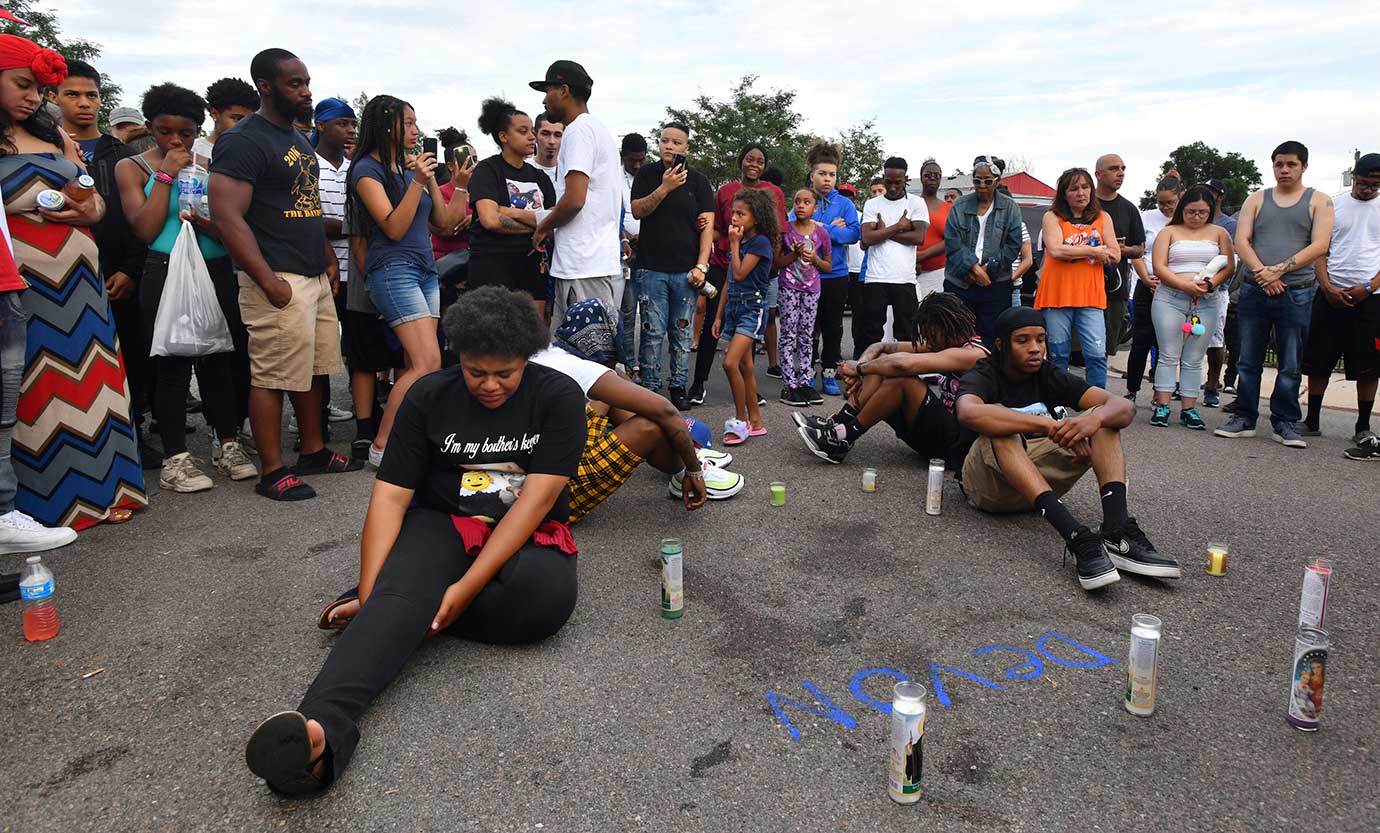
Family, friends and supporters of De’Von Bailey gathered at the place where he was shot to death in August. Photo by Jerilee Bennett/The Gazette via AP
Family, friends and supporters of De’Von Bailey gathered at the place where he was shot to death in August. Photo by Jerilee Bennett/The Gazette via AP
On Aug. 3, 19-year-old De’Von Bailey was shot multiple times in the back while running from the police in Colorado Springs.
Less than two weeks later, with pressure from the family and the community, the police department released the police officers’ body camera videos (note that the footage at the link can be difficult to watch).
The videos are nothing short of shocking. What begins with a banal request by the officer responding to a call about a robbery—“Hey guys, can I talk to you for a second?”—ends with Bailey face down in the street, groaning as the blood pools around his body 60 seconds later.
Police violence is a public health threat that ultimately affects all of us. The trauma of police abuse can reverberate through lives and across communities, diminishing our health and safety—sometimes in measurable ways.
But some communities are more deeply affected than others.
Police violence is a leading cause of death among young Black men in this country, according to a study in the Proceedings of the National Academy of Sciences released shortly after Bailey was killed by police. Black men and boys are 2.5 times more likely than white men and boys to die in an encounter with police, the study found.
The Bailey family lost their son, nephew, cousin and friend that day. The family has hosted vigils and held press conferences. They have asked the state Attorney General’s Office to investigate, saying local law enforcement agencies’ ability to deliver an impartial investigation is undermined by conflicts of interest.
Bailey’s death has made national headlines and was the subject of a recent episode of The Breakdown, a podcast by civil rights activist Shaun King. In the episode, King offers his perspective on why Colorado Springs police shot teenager Bailey repeatedly in his back as he ran away from them. What do the laws say about this? And what can we do about police violence? King dives into the unique dangers of being Black, armed and confronted by American police.
“De’Von Bailey faced judge, jury, and executioner on August 3. He deserved a day in court, he deserved due process, he deserved a chance to make his case,” said King. “But the way things are stacked up right now, those things apply to some people a hell of a lot more than they do others.”
Click here to listen to King’s podcast in full.